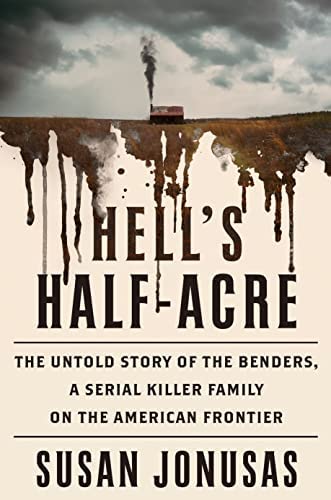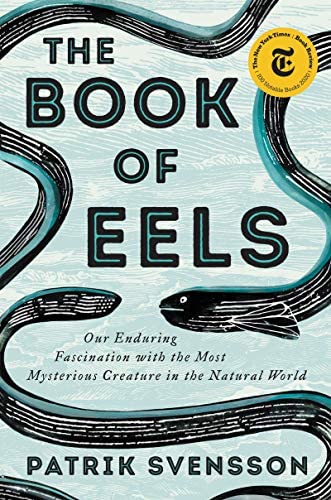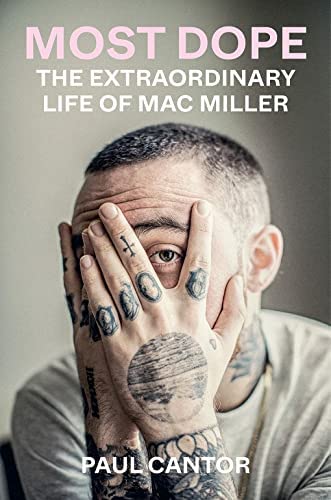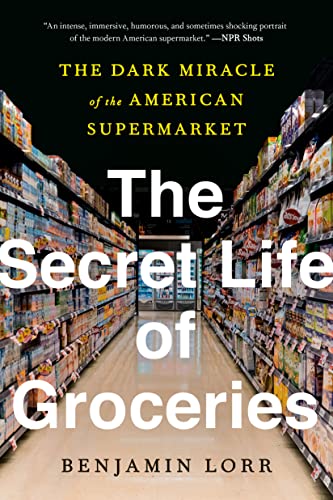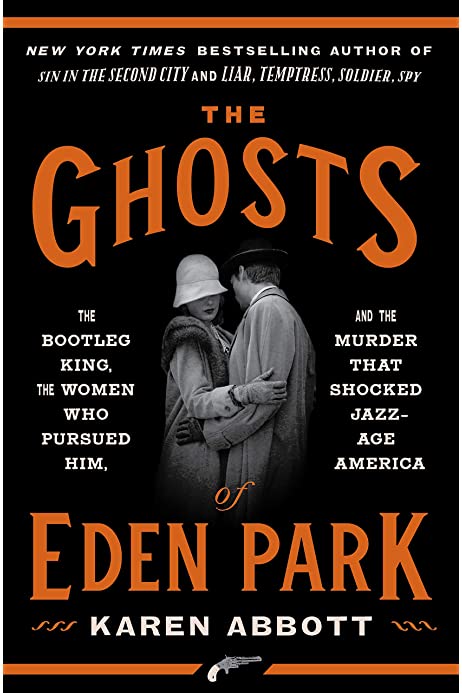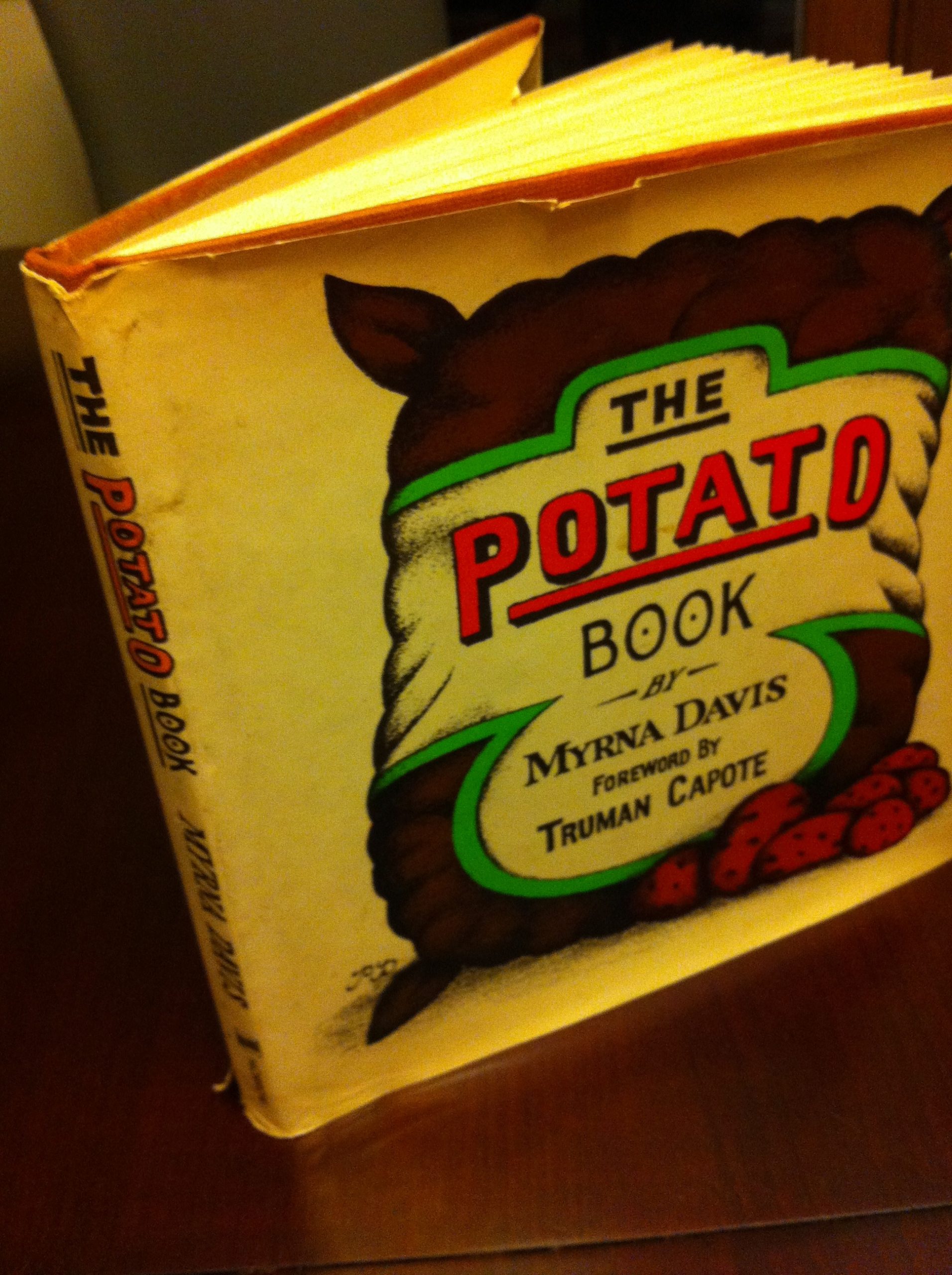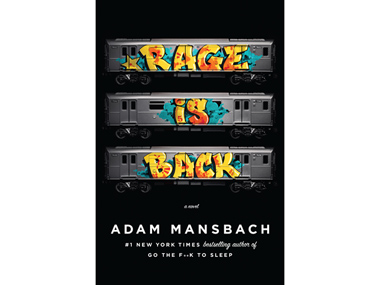The new year is coming, and I’ve decided to record my five favorite fiction and nonfiction books read in 2022. Below is my nonfiction list in no particular order.*
Hell’s Half Acre
Susan Jonusas – Twitter Instagram
Penguin, 2022
This is the story of the Bender family, mass murderers in 1870s Kansas. I usually don’t go in for true crime, but something about the backdrop of westward expansion and the fact that this book in a long queue at my local library drew me in. I’ve been reading a lot about the latter part of the 19th century lately, and it’s amazing to me how recently Kansas was considered the far west. I also read Sam Patch: Famous Jumper and Pioneers recently. In those books, western New York and Ohio were considered the far west. (Yes, I know this is a colonizer perspective. For more on that, I recommend 1491, which is great, but not something I read in 2022.)
Hell’s Half Acre lacks some details that simply seem to have been poorly recorded at the time of the events. For instance, it’s hard to ascertain who the members of the Bender family are and how they are related to each other. What resonated with me was the way these crimes occupied public consciousness to the point of becoming as much legend as fact. Also, law enforcement became hell bent on finding the culprits to the point of ignoring facts. In these ways, the story resonates well with the modern age.
The 1800s gave us Johnny Applesead, John Henry, and Billy the Kid. As the United States was defining its history and folk heroes, the story of the Benders was circulating widely as well. This is not a tale I’ve heard before, but apparently its active folklore in modern-day Kansas.
The Book of Eels
Patrik Svensson
Ecco, 2021
Someone gifted this book to my son, and the only reason I picked it up was because it was sitting around the house and it has a gorgeous cover. I don’t care about eels, or at least I didn’t care about eels when I started this book. However, Svensson’s passion for the subject made me consider the mystery of eels, the history of their scientific study, and the fight for their ongoing survival. Did you know that Sigmund Freud spent a good chunk of time dissecting and researching eels?
Alongside summarizing the science and describing the perplexing mating habits of eels, Svensson weaves in a personal memoir. For me, his passion for his subject matter jumped off the page. I began to care because Svensson cares so deeply.
The last time I encountered a book where the author’s passion felt similarly spilled across the page in this way was when I read Pawpaw: In Search of America’s Forgotten Fruit. Please ask me about pawpaws if you ever see me out and about.
Most Dope: The Extraordinary Life of Mac Miller
Paul Cantor – Twitter Instagram
Harry N. Abrams, 2022
This is another book I came to by mistake. Celebrity biographies are not my thing, but I like Mac Miller’s music and this book was available on audiobook from my library at a time when I was spending hours making giant eyeballs out of cement.
Anytime you delve deep into the life of a successful person, you find out they were successful because they worked really damn hard. This is the case with Mac Miller. He was coming up through the underground music scene when he was still in high school, hustling to sell music at Frick Park Market, and seems like he was generally a charismatic, kind person though disastrously flawed.
Mac Miller’s rise to fame coincided with the explosion of the internet, and the book explained how he developed his fan base from the early MySpace days and into the modern era of social media. The book also talked about Miller navigating hip hop as a white rapper and a time when Eminem and Macklemore were popular as well and it wasn’t hard to notice the cultural appropriation happening. In these ways, the book hit upon important cultural phenomena that transcend Miller.
All fans know this story ends with Miller struggling with addiction and dying. Drugs are a constant, heartbreaking backdrop here. The author took a lot of heat because Miller’s family did not authorize the book. A lot of his source material came from published interviews and not direct conversations with Miller’s family. I don’t care about this. Cantor is a career music journalist, and he doesn’t deserve your bad Amazon reviews. The book gave me a greater appreciation for Miller who, in his last album, was as much a singer/songwriter as anything else. He loved making all kinds of music, and I wish he could make more.
The Secret Life of Groceries
Benjamin Lorr Twitter Instagram
Avery, 2021
The Secret Life of Groceries is a deep dive into economics, labor, supply chains, and American cultural anthropology. We’ve moved from the general store, to the corner store, to the supermarket, to the big box store. Major events in American history such as World War II and the space race spurred innovation in food preparation, preservation, and packaging. The way we eat and shop has changed drastically.
Lorr also explains how profit margins marketing and shifting buying habits allow certain stores to prosper. There’s a lot in here about the rise of Trader Joe’s and how it developed its fun, labor-friendly image which I found fascinating.
There are chapters that follow international large scale fishing operations where labor is close to modern-day slavery. Lorr rides along with an American trucker who is constantly guarding against personal danger and who cannot get out from under the debt she incurs in the course of performing her job.
It’s all sad and terrible, and you’re taking part in it. Don’t read this unless you’re willing to be a little bit bummed out when you grab that BOGO La Croix off the shelf.
The Ghosts of Eden Park
Karen Abbot – Twitter Instagram
Crown, 2020
Every now and then I stumble upon some major part of history that I’m astonished has escaped me before. This is how I felt when I read The Ghosts of Eden Park, the story of lawyer turned bootlegger George Remus, the German immigrant bootlegger who became a household name during prohibition.
This story is very Gatsby/American Dream. A hard-working immigrant determined to make a name for himself in a time of nebulous laws and bribeable, hard-drinking law enforcement officials and politicians. There is definitely a high degree of hypocrisy in Remus’s eventual prosecution, and the book includes fantastic courtroom drama as Remus serves as his own lawyer.
Patriarchal power structure plays a significant role in the events as well. Remus’s second wife, Imogene, is clearly trying to navigate everything as best as she can in a way that will preserve her livelihood at a time when she is treated as property.
What I consider the most remarkable story in the book is that of DOJ prosecutor Mabel Walker Willebrandt who doggedly pursues Remus and has to tread delicately around the corruption of her male colleagues. Willebrandt is considered “the most powerful woman in America,” yet all newspaper accounts can’t help but comment on her appearance and marital status. She campaigned for Herbert Hoover and fully expected to be the first female attorney general of the United States. Of course, she was passed over for someone less qualified. Shouldn’t we all know of Mabel Walker Willebrandt?
That’s it! Happy reading in 2023. Here’s a link to my fiction list. Oh, you haven’t read my books? You can find those here.
* In a year where the term “nepo baby” is gaining traction, I excluded Franklin Booth: Silent Symphony, by my mom, Alice Carter, from consideration. Nevertheless, this is a beautiful, well done book that not only serves as a biography, but also helps form the narrative of American Illustration.

